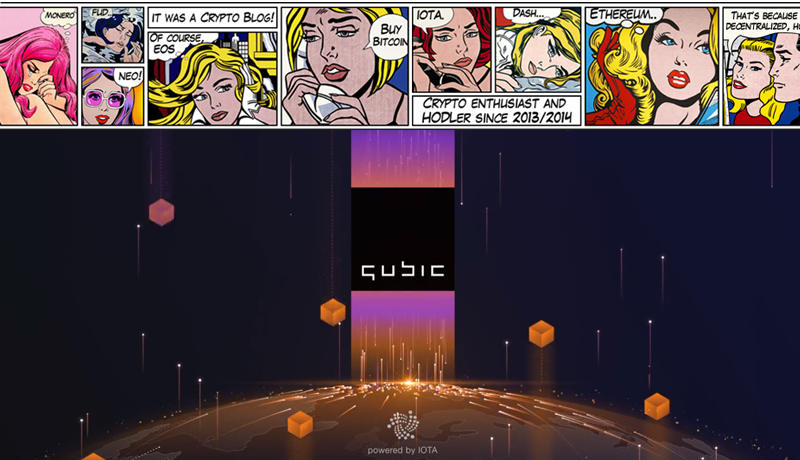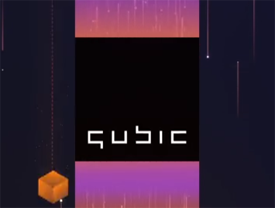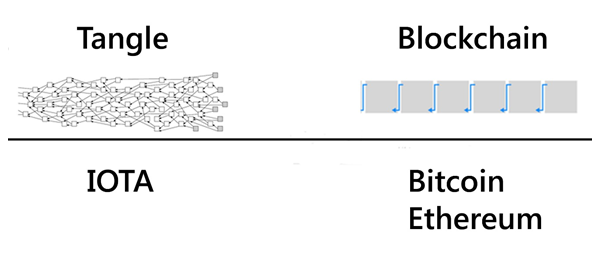IOTA finally disclosed super hyped-up 'Q' news - Smart Contracts on the Tangle 🚀

IOTA released some more news regarding the highly anticipated yet mysterious 'Q' project. It has been made known that the project is called Qubic, and it will enable smart contracts, oracles, outsourced computing and more.

QUBIC

Although details are still scare on Qubic, and more news will be made in the future, what we do know is that Qubic will add several new exciting features to IOTA. These are:
- Smart Contracts - no longer is IOTA 'just' a currency, but now it competes with Ethereum and the likes and it does so with free transactions and infinite scalability
- Oracles - These are a way to connect data from the outside world into the tangle
- Outsourced computing - likely through smart contracts coupled with IOTA payments
Here's a promotional video for Qubic. I'll have to warn you, it doesn't really clarify much:
If you don't like the quality of this Youtube-uploaded video you can also watch the original on the Qubic website.

GAME CHANGER
So, I'll be the first to say I don't like the video with all it's pompous music and little information. That being said, Qubic looks to be a game-changer for IOTA. Certainly I've always thought IOTA had potential but the addition of Smart Contracts on the Tangle is revolutionary and never been done before as far as I know. This makes IOTA immediately a competitor of Ethereum, EOS, NEO and other platform crypto's.IOTA has a huge advantage though in the fact that their cryptocurrency is not blockchain based, but rather based on a different kind of ledger called a Hashgraph. This works in a different way, and offers a method where the blockchain does not slow down when it is used more but instead actually speeds up the more it is used. This provides for infinite scalability. At least, in theory, because the IOTA tangle is only half-working currently and still relies on a centralized 'coördinator node'. The coördinator node is an often criticized aspect of IOTA but the developers maintain that it is necessary in the early stages.

(source)
On top of providing infinite scalability (in theory), since IOTA does not work with miners, there are zero transaction fees. There are other competing projects which offer high throughput and zero fees, such as EOS, but upon closer inspection you'll discover that these projects are still limited in speed and scalability, and although regular users do not incur any costs there are in fact costs associated with transactions which are paid by service providers. IOTA transactions, on the other hand, are actually free to make.
The addition of outsourced computing and oracles is great too, by the way! But I consider these to be a side-effect of Smart Contracts honestly, as I imagine these technologies rely greatly on smart contracts as the underlying architecture.
On the Qubic website, it says that more information regarding Qubic will be made known on 03-06-2018 (that's 06-03-2018 for Americans).

POWERED BY IOTA

This seems to indicate that Qubic and IOTA are actually two seperate things, that work together. I guess you could say Qubic is to IOTA, as Rootstock is to Bitcoin?
This could work out both good or bad. I would much rather see Smart Contracts built into the core IOTA layer, as it would gain more legitimacy. But perhaps the two projects are intertwined enough that it does not matter per se, and perhaps there is even a lot of wisdom in keeping the base currency layer simple and non-complex.

I've been hodling IOTA ever since it hit the market last year. I've always liked it's different technology and fee-less design, as well as it's focus on the IoT. IOTA has since formed serious partnerships with respectable and leading global corporations such as Volkswagen, Fujitsu and Bosch. In addition, they are the subject of study by many university and even governments are experimenting with implementing IOTA.
Though I don't know if IOTA will ever dethrone/replace Bitcoin, I do think the project has a bright future ahead of it. It is the leading Hashgraph-based cryptocurrency and despite their grumpy and anti-social devs, they seem to have no problem garnering interest. To me, IOTA is one of those crypto's with an X factor - there's just something to it that makes you think "this could be something".
Also, Ledger Nano S support should be coming very soon!
Click here to go to the Qubic website

Why does IOTA always get so much publicity/exposure/hype and Byteball is kept in secret?
Does IOTA have any advantage over it?
Good question, especially since Byteball was created a lot earlier than IOTA!
But I think the main reason is that Byteball development seems to have been at a standstill for a long time. Not much excitement going on to draw people in?
IOTA on the other hand is forging partnerships, garnering government interest and actively developing.
I don't think it helps Byteball either that they operate on that weird chat-based system. I could've had some free Byteball once, but the whole chat-based thing was so alien to me that I didn't even bother to pick it up. In hindsight I regret it, but it does say something about the accessibility if someone like me, who knows a fair deal about crypto, already experiences such a big hurdle.
Do you know why blockchains and even Byteball, which has no blockchain store their entire history of transactions instead of current states or 2-3 last states at worse?
It seems redundant, but I guess it has a justification.
It also hurts privacy.
I don't know about hashgraph but I do know that with blockchain it doesn't store the 'state' of your wallet at all. It only stores all the transactions from the beginning, and when you access your wallet it actually goes through all of the transactions from the beginning to calculate (recalculate?) your current wallet's worth. In no way and in no moment is ever a 'snapshot' taken of your wallet contents because that's not how the blockhain works.
Basically if we start with 100 coins, the blockchain will only store that 50 went to you, and 50 went to me, then 25 of mine went to you and 10 of yours later went to me. Your wallet software then calculates that based on these transactions your wallet contains: 50-25+10=35 coins. Without knowing the previous transactions you cannot calculate this.
Additionally, it depends on your outlook. Some people see privacy as a must-have feature for crypto, but another group of people will say that transparancy is one of the killer features of crypto.
You got a 12.50% upvote from @luckyvotes courtesy of @stimialiti!
You got a 27.59% upvote from @luckyvotes courtesy of @stimialiti!
You got a 11.76% upvote from @sleeplesswhale courtesy of @stimialiti!
You got a 13.16% upvote from @ubot courtesy of @stimialiti! Send 0.05 Steem or SBD to @ubot for an upvote with link of post in memo.
Every post gets Resteemed (follow us to get your post more exposure)!
98% of earnings paid daily to delegators! Go to www.ubot.ws for details.
Wow. That is AMAZING for IOTA! The biggest problem I had with IOTA going into the IoT market was its lack of smart contracts. I actually wrote 2 posts about it...
But now with Qubic, IOTA is my one of my favorite cryptocurrencies. I loved the DAG part of IOTA, but if it had smart contracts it would be much better.
Yes, I had this same 'issue' with IOTA too. I always liked the tech but had serious trouble seeing the token value proposition if it was only a currency. This increases it's value and usability a lot!
Hi LOVE YOUR POST MAN!!! LIKE MY POST TOO!!!!! HERE IS THE LINK: https://steemit.com/bots/@abusereports/last-minute-upvote-list-2018-05-02
Hi LOVE YOUR POST MAN!!! LIKE MY POST TOO!!!!! HERE IS THE LINK: https://steemit.com/bots/@abusereports/last-minute-upvote-list-2018-05-02
Hi LOVE YOUR POST MAN!!! LIKE MY POST TOO!!!!! HERE IS THE LINK: https://steemit.com/bots/@abusereports/last-minute-upvote-list-2018-05-02